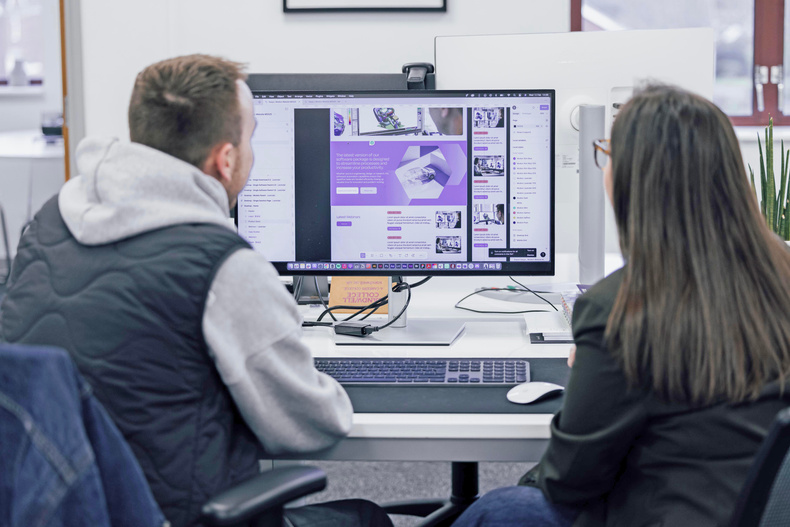Why most of your marketing budget is wasted on visitors who leave immediately

Written by Jonny Albutt from Jask Creative
High bounce rates, poor conversions, and silent frustrated customers can be costing your business thousands each month - and cause long-term damage to your brand reputation and loyalty.
Research reveals that the average UK B2B business website has a bounce rate of over 60 per cent, meaning nearly two-thirds of visitors leave most sites after viewing just one page.
Marketing teams often focus entirely on driving traffic, whilst overlooking what happens when visitors actually arrive.
The result? You're essentially paying to bring customers to a shop with broken doors and confusing signage.
This isn't just a minor inconvenience - it's a financial liability that’s hiding in plain sight.
Whilst you’ll never convert every visitor; poor navigation, slow loading times, confusing design or user journeys, and errors are silently diluting the return on your marketing investment.
Remarkable returns from modest UX investment
Recent research from the highly respected Nielsen Norman Group demonstrates that spending just 10 per cent of your development budget on user experience research and consultation typically delivers over 80 per cent increase in conversions.
This represents one of the highest returns on investment available to modern businesses; it’s the secret that larger organisations (and maybe even your competitors) keep to themselves!
Companies implementing strategic UX improvements consistently see conversion rates increase substantially.
More importantly, these improvements can compound over time - better user experience increases customer loyalty, reduces support costs, and generates positive word-of-mouth recommendations.
How to solve this: Three practical steps to immediate improvement
Start with user research, not assumptions
Replace guesswork with evidence through structured user interviews and usability testing.
Understanding how customers actually navigate your website, and how they feel - rather than how you think they do can reveal specific friction points that are costing conversions.
If budgets are low, leverage User Experience experts to conduct Heuristic Evaluation, which systematically evaluates your site against established user experience best practices.
Whilst not a direct replacement for real user observations, a skilled User Experience team can bring an impartial, unbiased fresh set of eyes that can make a huge difference.
Focus on navigation, clarity and remove errors
Ensure users can find what they need with as few clicks as possible, and leave nothing to guesswork for users.
Implement clear menu structures, consistent navigation and design elements, and ensure everything works perfectly across any device.
These foundational improvements often deliver the highest impact for the lowest investment.
Test, learn and iterate
Use A/B testing and user behaviour monitor platforms like HotJar to learn and progress from the improvements you make.
UX is not a single process; it’s a non-linear, agile process that allows you to learn and refine over time.
This data-driven approach prevents costly mistakes whilst building success.
Start with refining your highest-traffic pages, and work systematically through your conversion funnel right through to the end of the process.
Leave no stone unturned - it can be the smallest frustration or error that frustrates a user, and breaks trust in your service or product.
Stop losing customers and breaking trust
Appointing an experienced UX expert to review your website is the first step in transforming frustrations into measurable success.
Your competitive advantage starts with understanding your users and delivering them an experience that gives your marketing spend the highest chance of converting.
Reference sources
- SpotDev - Bounce rate study
- Nielsen Norman Group - Usability ROI
